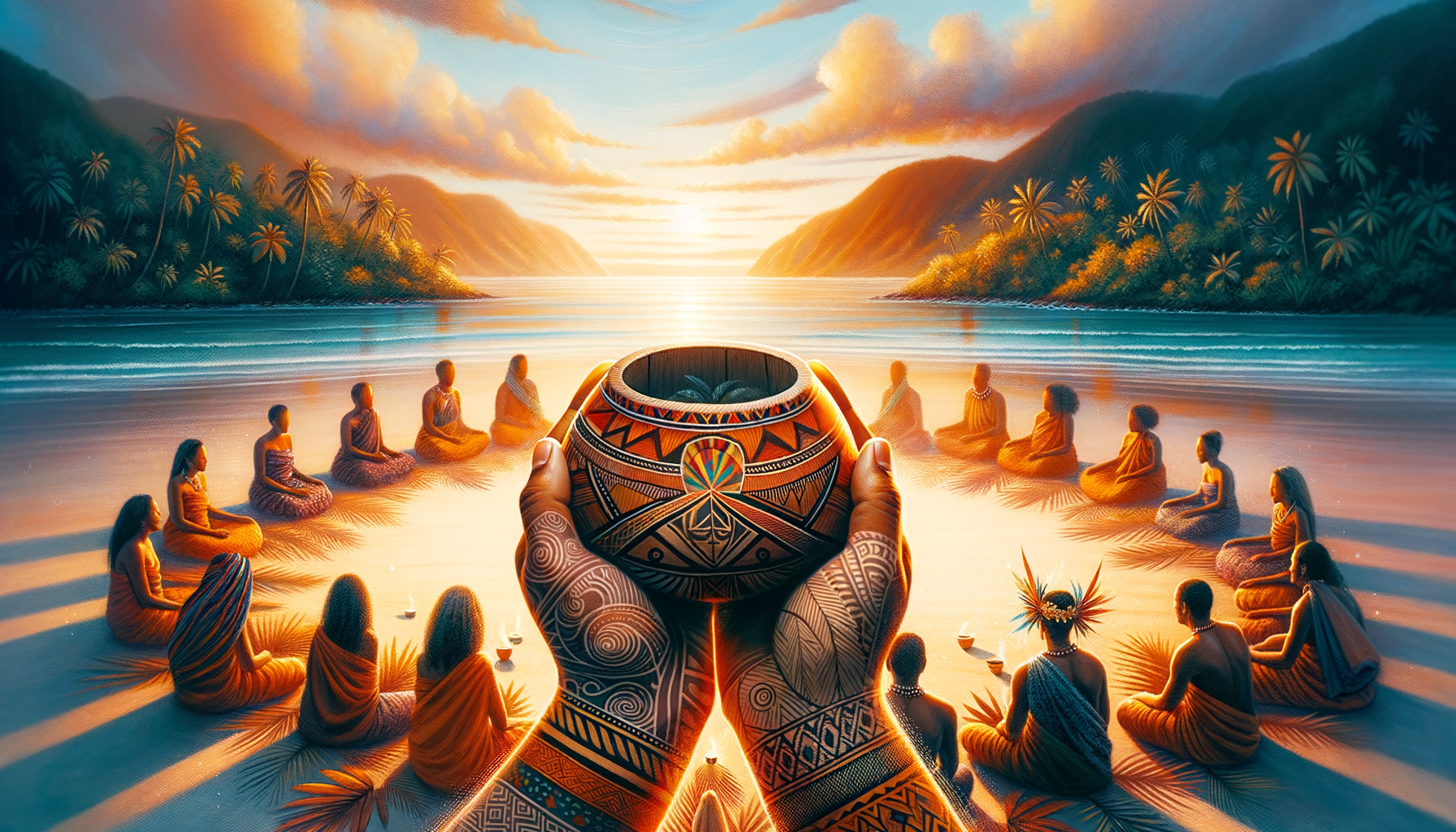Introduction
New Caledonia is a beautiful French island in the South Pacific. It has a mix of Melanesian and French cultures. One of its special traditions is kava, a plant root known for its calming effects. Curious about kava in New Caledonia? Let’s find out more about its history, cultural importance, and modern-day use.
History
Kava has been in New Caledonia for hundreds of years, coming from nearby Melanesian regions. Over time, it became more than just a drink; it symbolizes togetherness and spiritual connection.
When the French came to the island, they didn’t take away the importance of kava. Instead, they recognized it. Sometimes, French settlers even took part in kava ceremonies, blending their traditions with local ones.
Cultural Practices
In New Caledonia, making kava is a careful process. People wash the roots, pound them, and mix them with water to make a strong drink. This process is similar to how it is done in places like Vanuatu and Fiji.
Drinking kava in New Caledonia is a serious tradition. It often marks important events and brings people together. Unlike kava bars in Western countries, these ceremonies are quiet and respectful.
Social Importance
Kava is more than just a drink; it helps bring people together. It plays a big role in gatherings, creating unity and peace.
When I took part in a kava ceremony in New Caledonia, I felt a strong sense of connection. Sitting in a circle with others, listening to chants, and tasting kava created a feeling of community. It showed how kava connects different worlds.
Today, kava is still vital in New Caledonia’s social life. It helps people connect beyond just chatting online.
Kava Tourism
New Caledonia is becoming known for kava tourism. Visitors can take part in real kava ceremonies at local nakamals, or kava bars.
Tourists should respect these rituals and learn about their importance. Many visitors talk about how special these experiences are, highlighting the feeling of community and calm that kava brings.
Health & Benefits
Kava is known for its benefits, like reducing anxiety, helping with sleep, and improving well-being.
It’s important to clear up any wrong ideas. When used properly, kava in New Caledonia is safe and enriching. Local fans and health experts often talk about its good points, supporting informed and respectful use.
Kava Industry in New Caledonia
The kava industry in New Caledonia is doing well. Small farms and bigger groups all help the local economy. But they do face challenges like changing markets and the need for sustainable farming.
Even with these problems, the kava industry is growing because more people around the world are interested. This growth brings economic and cultural benefits to New Caledonia.
Comparing with Other Regions
Kava in New Caledonia is similar to kava in Vanuatu and Fiji but also has its own unique features. The way it’s done in New Caledonia blends Melanesian traditions with French history, showing a special mix of cultures.
Community Stories
The heart of kava culture in New Caledonia lies in local stories. Community leaders and kava fans share tales of tradition and the important role of kava in their lives. These stories give us a deeper understanding of kava’s everyday importance.
Conclusion
Kava culture in New Caledonia shows the island’s rich history and mix of traditions. Keeping these practices while also adapting to new trends is important. If you are curious about kava, exploring it in New Caledonia offers a special and enriching experience.
Additional Resources
- Further Reading on Kava Culture
- Get Involved in Kava Communities
- Recommended Kava Products
Start your kava journey and explore this amazing tradition. Whether you’re an experienced kava drinker or just curious, New Caledonia offers a unique mix of culture, community, and the calming essence of kava.

Leave a Reply